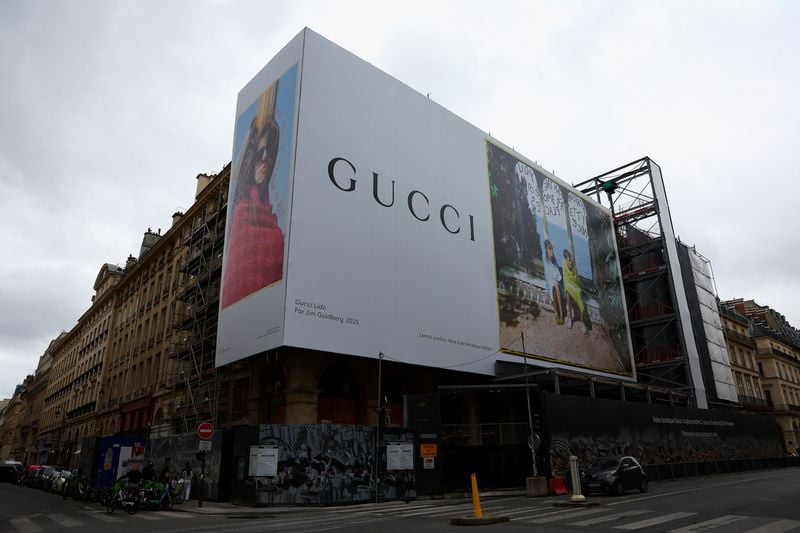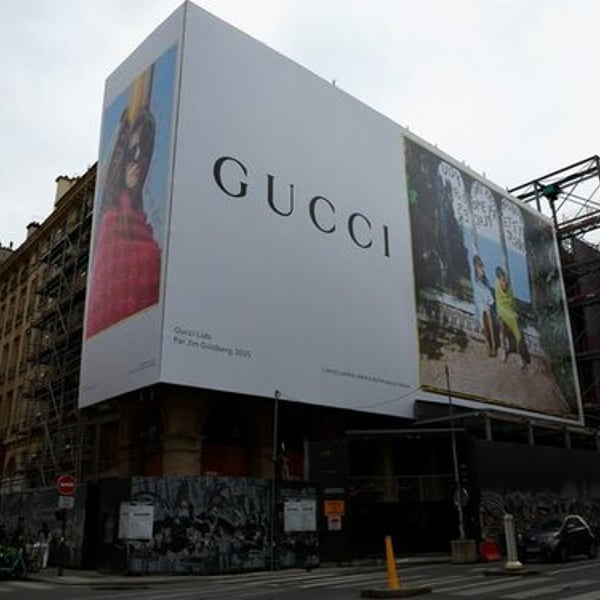By
Reuters
Published
May 28, 2025
In an effort to reduce Kering’s overreliance on its struggling flagship label Gucci, French billionaire François-Henri Pinault may have triggered a new crisis. A series of acquisitions has significantly increased the group’s debt load just as the luxury industry enters a prolonged downturn.

Managing that debt has become increasingly difficult. Kering shares have dropped 60% over the past two years, and the threat of tariffs from former U.S. President Donald Trump has dampened hopes for a sector recovery. These challenges are weighing heavily on Kering as it competes with deep-pocketed luxury rivals.
Pinault’s family, which holds Artemis—which controls Kering and holds a stake in sports brand Puma—is also burdened by debt. It may need to repay €500 million ($567 million) in cash to investors following the cut-off date for a convertible bond, triggered by Puma’s underperformance.
Kering could also face additional financial pressure as early as next year if it is required to buy out the remaining stake in fashion house Valentino.
Although the company is cutting costs and selling off real estate, bondholders told Reuters that if its financial position doesn’t improve, it risks receiving a third credit rating downgrade in as many years. They declined to be named due to confidentiality.
Another downgrade would make it even harder for Kering to revive Gucci and compete with debt-free powerhouses like Hermès, Chanel and LVMH—all of which are investing heavily in their brands.
“This is the worst of times because sales are falling, profits are down, and interest rates are rising. They can’t even renegotiate their debt,” said Eric Pichet, an economics professor at France’s Kedge Business School.
Kering declined to comment for this article.
Pinault, who became CEO of Kering in 2005 after taking over from his father François, enjoyed years of explosive growth driven by Gucci and the “ugly-chic” aesthetic of former creative director Alessandro Michele.
However, consumer interest in Michele’s fur-lined loafers and eclectic style faded after the pandemic. Pinault responded by diversifying the business through acquisitions. Kering took a 30% stake in Valentino, acquired luxury perfume brand Creed, invested in prime real estate, and—via Artemis—purchased a controlling stake in a Hollywood talent agency.
As a result, Kering’s net debt surged to €10.5 billion by the end of 2024, up from virtually nothing in 2021. That debt now represents half the company’s market value. Meanwhile, Artemis’s debt is even higher, according to recent filings.
Shopping spree
A source who advised Pinault and Kering executives said the group struggled post-pandemic to decide whether Gucci should focus on bold fashion or return to more classical designs.
As Gucci’s sales declined, Pinault moved aggressively. In 2023, Kering paid €3.5 billion for Creed and $1.9 billion in cash for 30% of Valentino.
Within two years, Kering also spent approximately €4 billion acquiring prime retail properties in New York, Milan and Paris.
An insider said Kering paid substantial premiums to outbid rivals, fearing that its brands—including Yves Saint Laurent and Balenciaga—could lose access to top-tier locations.
With free cash flow down nearly 30% in 2024 to €1.4 billion, Kering is now selling stakes in these properties. According to remarks made to analysts in February, the group aims to raise €2 billion in cash by 2026.
However, these sales may not reach their book value. Kering’s 2024 annual report shows a €100 million charge on the sale of a 60% stake in three Paris properties.
Other pressures are mounting.
Kering previously stated it would acquire Valentino outright by 2028 from Mayhoola, a Qatari royal-backed investment fund. However, putting options in the agreement could force Kering to buy the remaining 70% as early as May 2026. Depending on Valentino’s performance, this could require an additional €4 billion.
In April, Kering said its cost-cutting plan—which includes store closures and layoffs—could allow it to finance an early buyout if needed. The company also noted that it could use up to 3 million Kering shares, or 2.4% of its equity, to pay part of the acquisition price.
According to a source close to Mayhoola, the fund would welcome a stake in Kering as part of its broader investment strategy.
Still, based on Kering’s current market value, a share-based transaction would only cover a small portion of the total cost.
Downgrade risk
S&P told Reuters that Kering’s adjusted net debt—including lease obligations—stood at 3.8 times core earnings (EBITDA) by the end of 2024. While S&P declined to comment on the timing of any potential downgrade, the trend is concerning.
UBS analysts recently estimated that Kering’s leverage ratio could hit 4.1 by the end of 2025. One bondholder noted that breaching the 4.0 mark often signals an increased risk of a credit downgrade.
Replicating his acquisition strategy at the family level, the 63-year-old Pinault used Artemis to acquire a 53% stake in talent agency CAA for €3.5 billion, according to filings.
At the end of 2023, the most recent filings show that Artemis’s total net debt—including Kering’s—stood at €20.2 billion, more than double the previous year.
While Kering could theoretically cut its dividend to conserve cash, such a move would likely worsen liquidity issues at Artemis, which depends on dividend inflows.
($1 = €0.8813)
© Thomson Reuters 2025 All rights reserved.




